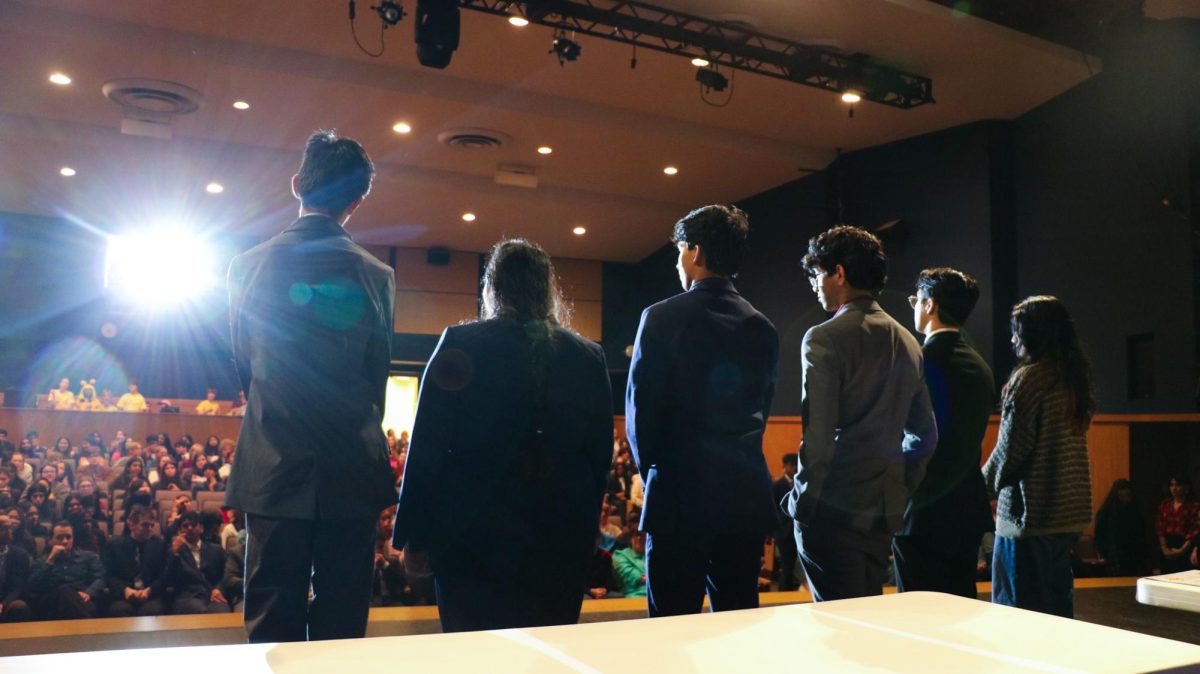Gym class will be different than junior Marina Henke has ever seen. Instead of playing games or running, she will be told to dig a hole in a frozen lake and intermingle with her history classes.
Henke is going to attend Conserve School in northern Wisconsin for the second semester of her junior year. The unique school focuses on environmental stewardship and is solely for juniors in their second semester.
“The idea is that, if you go there you are learning through the environment,†Henke said. “Half of your time in every class, except math and stuff, is spent outside. There is not a day where you don’t do something outside.â€
Henke’s main concern going into the year will be her classes. She will take AP biology for a semester at Clayton, but will not be able to finish the course when she gets to Conserve School, where she will instead take a rigorous AP Environmental Science course. Henke will have to learn a semester’s worth of Latin on her own in order to remain on track to take Latin V senior year.
Overall, though, Henke is thrilled for the opportunity to study what she enjoys.
“I’m very excited to kind of learn in a way that I think is a little more realistic for actual pursuits in the real world,†Henke said. “I am really interested in environmental education, so this gives me a really interesting opportunity to learn a lot more about it.â€
Henke considered a number of semester schools, but ultimately decided to attend Conserve School and received a scholarship. Conserve School offers a number of courses that interest her and will also provide her with an away-from-home experience without the intimidations of studying in a different country.
Henke’s fellow junior, Emma Mueller, does not have any concerns about making the commitment to studying abroad. Mueller will be attending Aurehøj Gymnasium, a public high school in Gentofte, Denmark, for the whole 2013-2014 school year.
Mueller’s mother is Danish, and their family goes on long vacations to the country every summer. Mueller can understand the language perfectly, though she is not completely fluent when speaking and reading.
 Aurehøj will provide Mueller opportunities to follow specific interests. Ultimately, that is why she chose to attend there over other Danish schools.
“They are really interested in music and arts, and that’s definitely something that I am very fond of and feel strongly about … they are very open,†she said.
 Mueller got the idea of studying abroad from her mother, who one day made an offhand comment about the potential opportunity. Mueller immediately fell in love with the idea.
“Literally, my mom said it and I couldn’t see myself doing anything else,†she said.
Mueller does worry about the changes she will face. She will miss her friends, American food and is apprehensive about a completely new environment.
“I’m a little nervous to start my new high school in a different continent with a language that I’m not totally familiar with,†she said. “It’s pretty nerve racking.â€
Ultimately, though, she sees it as a great chance to expand her connection with the country. She will get to continue many of her American hobbies, including swimming and art classes, and make new friends. She is not too concerned about falling behind of the class of 2015, though she may have to take summer classes to ensure that she is caught up.
Mueller and Henke are both exploring educational and cultural opportunities outside of Clayton. Fabio Bolz, on the other hand, will come to Clayton looking for similar opportunities.
Bolz is from Germany and will be entering his junior year. He is a foreign exchange student and will stay with fellow junior Megan McCormick’s family.
He is looking forward to exploring the extracurricular activities that are offered in the United States.
“There are much more courses to choose in American schools and there are no school sports and only a few clubs in German schools,†Bolz said.
He plans to play sports, though he is not sure which ones yet.
The German education system is very different that of the United States. Students go to elementary school for four years, and then will go to different levels based on how well they do in elementary school. The highest level is called Gymnasium. A student can only go to a University if they have a degree called an Abitur, which one can only get if they complete their Gymnasium education.
Education is one of many differences between German and American cultures. A completely new culture is an exciting prospect for Bolz, but he is nervous because he does not know what it will be like to live in the United States.
Though the three students’ circumstances are very different, Henke sees similarities between anyone living away from home and feels it provides great opportunities for learning.
“I just think there’s a lot of similarities you learn from going away from your home and putting yourself purposely in a situation where you may feel alienated.â€
Assistant principal Ryan Luhning agrees with Henke. He feels that studying away from home provides chances for students and teaches unique lessons.
“They are going to experience so much more and they are going to become so much more well rounded,†Luhning said, “not only as students, but probably more importantly, the experience of making them better people … [it is] something that can’t be measured.â€






